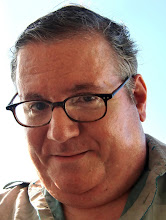The Death of Randy Pausch, the Death of Truth and the Value of Pain
"Randy Pausch, a terminally ill professor whose earnest farewell lecture at Carnegie Mellon University became an Internet phenomenon and bestselling book that turned him into a symbol for living and dying well, died Friday. He was 47."
As I lie in my hispital bed, I have had many hours to contemplate many subjects. I think I'm entitled to comment on Pausch's lecture. I never watched the whole thing when it first captured the media's attention or even afterwards. I saw a few clips on the evening news Friday, and what I saw was a series of silly, New Age non-sequiturs whose content amounted to nothing more than the lyric of the old song, "Everything is beautiful, in it's own way," one of the biggest lies ever put forward.
At one point, Pausch says he's dying, but he's having fun every minute he's alive. There was no video documentation of Pausch's last days, but I wonder if he had any fun when he was in unremitting pain from end stage cancer, and what his reaction to it was, other than hope for a quick death to release him.
A close cousin to Pausch is the female neurologist who sufferred a stroke, made a video presentation that was fatuously theatrical and clearly choreographed, which generated a book, where she makes a stroke sound like a mind expanding, enlightening experience.
Something bad began in the 80s when the view, exemplified by Pausch, that every sensation and situation we experience has some secondary and ultimately good meaning beyond the obvious surface, began to suffuse our culture.
Pain is a sensory feedback mechanism that all animals posess that has only one purpose: to avoid the pain inducing injury in the future.
Pain and tragic situations aren't learning events. My parents survived the Nazi genocide. If anything, they learned to try to avoid by any means being placed in an extermination camp. Their misfortune didn't make them wise or teach them the secrets of the universe.
We now want to believe that we can live without pain, loss or tragedy or we can rationalise them away by believing every cloud has a silver lining. This is a childish lie that eventually only leads to more suffering.
As I lie in my hispital bed, I have had many hours to contemplate many subjects. I think I'm entitled to comment on Pausch's lecture. I never watched the whole thing when it first captured the media's attention or even afterwards. I saw a few clips on the evening news Friday, and what I saw was a series of silly, New Age non-sequiturs whose content amounted to nothing more than the lyric of the old song, "Everything is beautiful, in it's own way," one of the biggest lies ever put forward.
At one point, Pausch says he's dying, but he's having fun every minute he's alive. There was no video documentation of Pausch's last days, but I wonder if he had any fun when he was in unremitting pain from end stage cancer, and what his reaction to it was, other than hope for a quick death to release him.
A close cousin to Pausch is the female neurologist who sufferred a stroke, made a video presentation that was fatuously theatrical and clearly choreographed, which generated a book, where she makes a stroke sound like a mind expanding, enlightening experience.
Something bad began in the 80s when the view, exemplified by Pausch, that every sensation and situation we experience has some secondary and ultimately good meaning beyond the obvious surface, began to suffuse our culture.
Pain is a sensory feedback mechanism that all animals posess that has only one purpose: to avoid the pain inducing injury in the future.
Pain and tragic situations aren't learning events. My parents survived the Nazi genocide. If anything, they learned to try to avoid by any means being placed in an extermination camp. Their misfortune didn't make them wise or teach them the secrets of the universe.
We now want to believe that we can live without pain, loss or tragedy or we can rationalise them away by believing every cloud has a silver lining. This is a childish lie that eventually only leads to more suffering.
Labels: Randy Pausch

